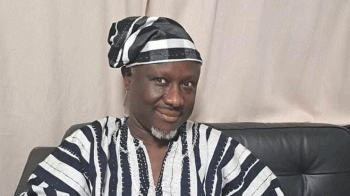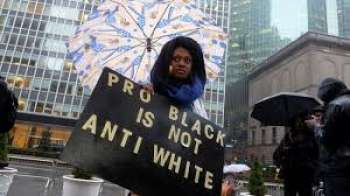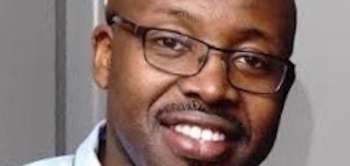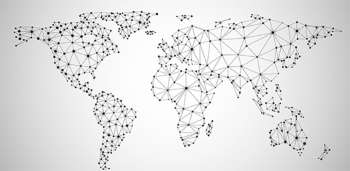Christians the world over celebrate Easter from today until Monday. Our writer MUTHENDE NDUUCU revisits the questions and different theories of the virgin birth, life, death and resurrection of Christ Let us travel back in time, 20 centuries ago and land in Palestine. It is around noon, one Friday in March, year AD 30.
A young man of about 33 years has just been frog-marched by Roman soldiers and followed by a crowd at the outskirts of Jerusalem city at a place called Golgotha. He is bleeding from many whips that have been administered by the soldiers. His head is also bleeding from a crown of thorns. He is extremely exhausted from carrying a heavy wooden cross and appears genuinely sad.
This man comes from a humble background. His mother is a peasant woman, and father, a carpenter. He was born of virgin birth and has no formal education. He has been teaching now for three years. But his teachings have been condemned by the authorities and so a few hours ago he was betrayed by one of his trusted friends, denied by another, deserted by several, arrested and subjected to two kangaroo courts.
Soon, this man will be nailed on the cross and placed between two thieves. Soldiers will mock him, spear him and divide up his clothes by casting lots. Then life will ebb out of him and thereafter his body placed in a borrowed grave. But on the third day the tomb will be empty. This will remain the most important extra-judicial killing in history. The man is Jesus Christ, son of Joseph.
The Greatest Figure on Earth
Fast forward to our times. Today, 2,000 years later, Jesus is the most influential figure and teacher of all times. The Christian religion which he founded has 2.2 billion followers. In a comment on "what was the most important year in human history?" Adrian Wooldridge wrote in The Economist's Intelligent Life magazine in 2009:
"You don't have to be a believer to recognise that Jesus' birth was the most important event in human history. Jesus inspired the world's most popular religion and plays an important role in both Judaism and Islam (population 1.65 billion and 18 million respectively). But he also shaped all subsequent secular history..."
"Two thousand years after his birth..... a third of the world population calls themselves Christians. It is such a momentous event that it makes other contenders for the most important year look feeble by comparison."
In the book, Jesus the Great Debate, Grant R. Jeffrey quotes Henry G. Bosch writing on how enormous the influence of Jesus on the course of western history, philosophy, theology and society:
"Socrates taught for 40 years, Plato for 50, Aristotle for 40 and Jesus for only three. Yet the influence of Christ's three-year ministry infinitely transcends the impact left by the combined 150 years of teaching from these men who were among the greatest philosophers of all antiquity. Every sphere of human greatness has been enriched by this humble carpenter of Nazareth."
Though the Intelligent Life Washington bureau chief Wooldridge was talking about the birth date, it is however the death and resurrection of Jesus that has been more remarkable. In The Case for Christ, a Journalist's Personal Investigation of the Evidence of Jesus Christ, Lee Strobel notes Gary Habermas:
"The resurrection was undoubtedly the central proclamation of the early church from the very beginning. The earliest Christians didn't just endorse Jesus' teachings; they were convinced they had seen him alive after his crucifixion. That's what changed their lives and started the church."
"Even the more skeptical historians agree that for primitive Christianity... the resurrection of Jesus from the dead was a real event in history, the very foundation of faith and not a mythical idea arising out of the creative imagination of believers."
The book also quotes another scholar, JP Moreland: "It is the ongoing encounter with the resurrected Christ that happens all over the world, in every culture, to people from all kinds of backgrounds and personalities - well educated and not, rich and poor, thinkers and fearless, men and women... that is the greatness of the resurrection event."
Indeed, to Christians the world over, the brief that Jesus died and rose again three days later is at the central part, the very heart of their faith. Without resurrection, the faith would be meaningless, futile, and empty as Apostle Paul said. According to the Bible, the death on the cross and resurrection completed God's work of redemption and reconciliation which was prophesied by many prophets in the Old Testament including Isaiah more than 700 years before Jesus walked on earth.
The American singer Patricia Smith seems to have captured this picture well: "Who was Jesus out to get? The thieves and the whores. He was looking to get the lowest of the low; he was looking to help the lepers to pray for themselves. They didn't need to go to these fancy Scribes and Pharisees, and, like, bring a lamb or a gold shekel and say, "will you say a prayer for me? "He was saying if you want to talk to God, you can talk for free: mention my name - You're in."
But why would a man with such a sacred and noble mission for humanity just three years into his ministry be condemned to death? His were multiple charges: forbidding taxes to be paid to Caesar; claiming to be King of Jews, wanting to destroy the temple; calling himself the Son of God and subversion.
And in this short span he had made enemies such that one of his disciples, Judas Iscariot, would betray Him.
Peter, another disciple denied Him three times. After going through two mockery of trials - by the Sanhedrin, the supreme Jewish Council, and Pontius Pilate, the Roman governor - people demanded that Barabas, a murderer be released but Jesus be crucified.
The whole drama, from his arrest to death was so brutal, violent and frightening to make today's human rights activists demonstrate in the streets.
Yet this man was not a criminal. He performed great miracles that included healing the sick, raising the dead and casting out demons. He preached the good news using the most inspiring parables. What was wrong with the people of Palestine then? Or did they consider Jesus a demon-possessed and mad monk like the Russian Grigori Rasputin?
As some say, probably the whole scenario was an "act of God" as Jesus himself had predicted that "He would suffer many things, be rejected by the elders, chief priests and teachers of the law, killed and rise again after three days."
And perhaps this pre-determined drama was the reason there came the greatest person since creation, irrespective that most of his followers still betray and deny his teachings even today.
Of the seven billion world population, a third are his followers. Islam - the second largest religion on earth - though does not believe in His divinity or God as a Trinity. It recognises him as a great prophet, mentioning him (Isa) 29 times in the holy Quran.
Christianity continues to be a prime mover in most social-economic-political activities in the world. Many books have already been written about the life and times of Jesus and more than 40 films made.
Even so, there are many, especially scholars whom Jesus would today call "doubting Thomases," whose research have come up with many questions and different theories of the virgin birth, life, death and resurrection of Christ. And therein lies the greatest mystery of this person.
By Muthende Nduucu: Allfrica.com

















